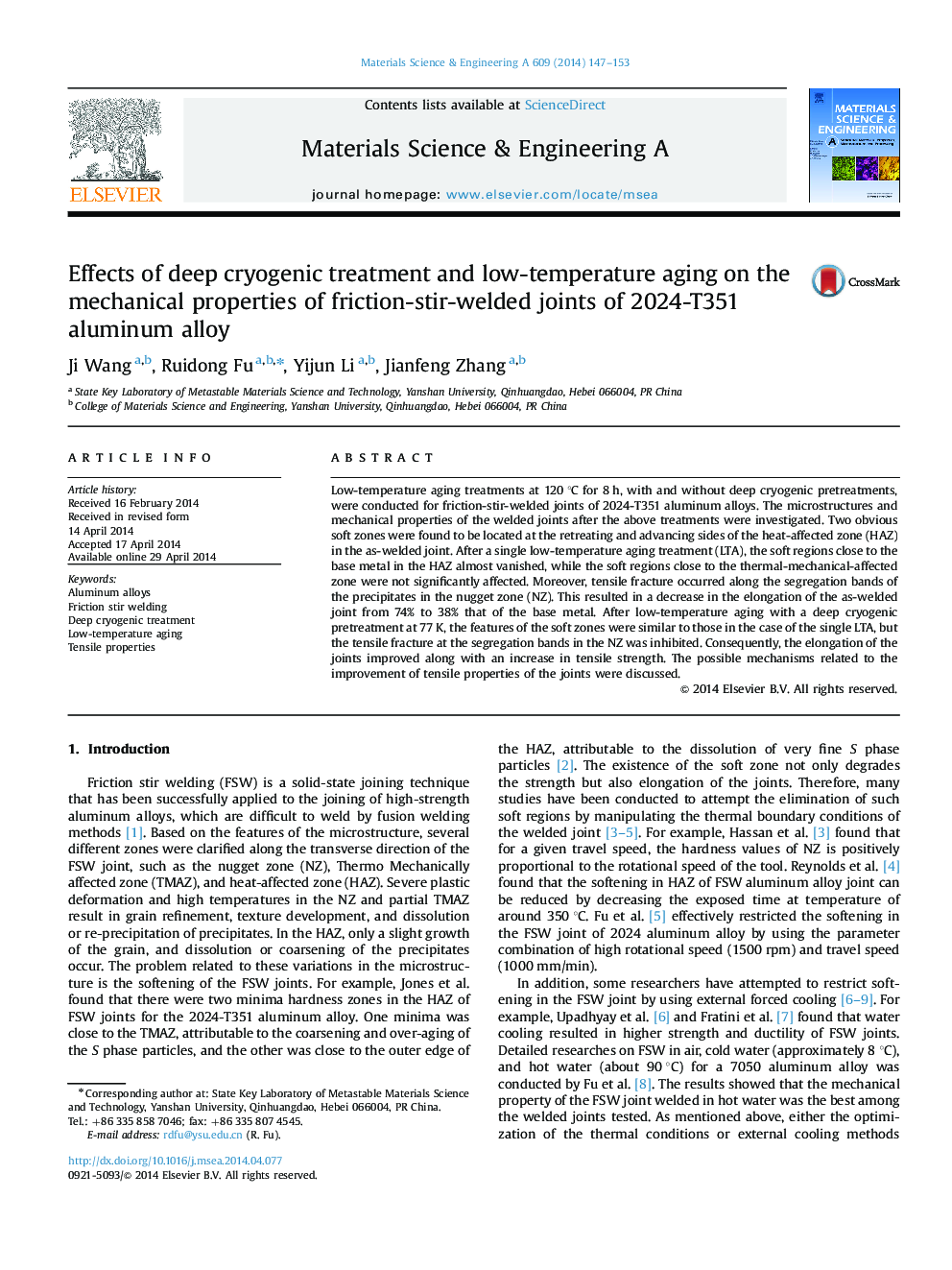| Article ID | Journal | Published Year | Pages | File Type |
|---|---|---|---|---|
| 1575144 | Materials Science and Engineering: A | 2014 | 7 Pages |
Abstract
Low-temperature aging treatments at 120 °C for 8 h, with and without deep cryogenic pretreatments, were conducted for friction-stir-welded joints of 2024-T351 aluminum alloys. The microstructures and mechanical properties of the welded joints after the above treatments were investigated. Two obvious soft zones were found to be located at the retreating and advancing sides of the heat-affected zone (HAZ) in the as-welded joint. After a single low-temperature aging treatment (LTA), the soft regions close to the base metal in the HAZ almost vanished, while the soft regions close to the thermal-mechanical-affected zone were not significantly affected. Moreover, tensile fracture occurred along the segregation bands of the precipitates in the nugget zone (NZ). This resulted in a decrease in the elongation of the as-welded joint from 74% to 38% that of the base metal. After low-temperature aging with a deep cryogenic pretreatment at 77 K, the features of the soft zones were similar to those in the case of the single LTA, but the tensile fracture at the segregation bands in the NZ was inhibited. Consequently, the elongation of the joints improved along with an increase in tensile strength. The possible mechanisms related to the improvement of tensile properties of the joints were discussed.
Keywords
Related Topics
Physical Sciences and Engineering
Materials Science
Materials Science (General)
Authors
Ji Wang, Ruidong Fu, Yijun Li, Jianfeng Zhang,
